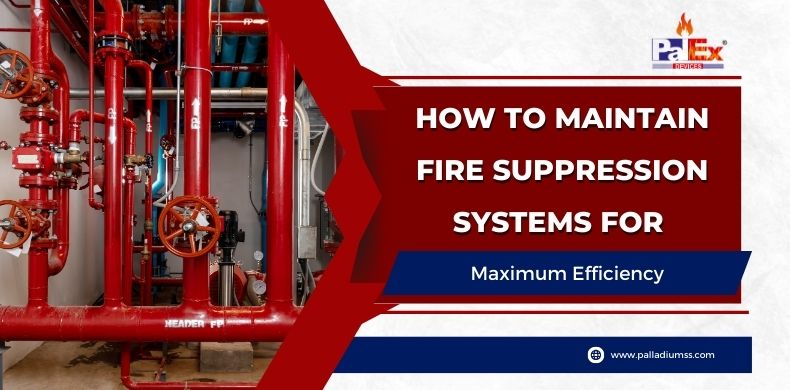Fire suppression systems can play a very important role in protecting your life and property from fire hazards. The systems are especially designed to detect, control and extinguish fires before they cause major damage. But like any safety equipment fire suppression systems require a lot of maintenance to ensure they function properly whenever needed. Our well maintained system can maximize efficiency and also comes with the Their safety regulations and reduces business downtime. In this guide you can learn everything about the importance of maintaining fire suppression systems for maximum efficiency.
Why is fire Suppression system maintenance essential?
A fire suppression system is your first line of defense against fire. Whether in a commercial building industrial plant data center or or a restaurant kitchen the systems must remain in peak working condition to ensure safety. A malfunctioning system might fail to suppress a fire leading to major losses. Authorities require businesses to test and maintain the suppression system to avoid penalties. Poorly maintained systems can trigger unnecessary Charge disruptions and financial loss. Reducing replacement costs. A well maintained system controls the fire quickly preventing injuries and fatalities while structural damage.
Different types of fire suppression systems and the maintenance requirements
Fire suppression systems are likely to vary depending on the application and the types of fire they are designed to combat. Water based fire suppression systems include sprinklers on fire hoses commonly used in commercial industrial settings. The maintenance tasks include inspecting sprinkler headers for blockages or corrosion. You also need to test water pressure to ensure sufficient flow and check for leaks in the pipes and valves.
- Gas based fire suppression systems use clean agents like carbon dioxide for others to suppress fires without sensitive equipment. You need to inspect the storage cylinders for proper pressure and leaks and check discharge nozzles for obstructions. It’s very important for you to test control panel functionality to ensure proper activation and verify the integrity of the room enclosure to contain the gas effectively.
- Foam based systems are ideal for oil refineries, chemical plants and aircraft hangars where flammable liquids are present. You need to test the concrete for proper consistency and effectiveness and inspect typings pumps and storage tanks for leaks. You could always flush the system to remove debris or sediment buildup.
- Dry chemical fire suppression systems are basically used in paint booths, industrial facilities and fuel storage areas; the systems discharge powder to smother the flames. You need to check the cylinder pressure to ensure chemicals are ready for discharge and inspect the nozzles for wear or even obstructions. You can test the actuation system to verify reliability and replace expired or contaminated dry chemicals.
- Wet chemical fire suppression systems are designed for commercial kitchens to handle grease fires using a chemical solution to smother the flames and inspect the nozzles and piping for grease buildup. Just test the manual and automatic activation mechanisms and check the chemical agents apply and replenish if required.
Step by step guide to maintaining fire suppression systems
- To keep your fire suppression system operating at optimum efficiency you need to look for different signs of deep corrosion and physical damage on system components and ensure control panels and alarms are operational.
- You need to conduct an alarm test to ensure fire detection systems trigger suppression correctly and activate the fire suppression system manually in a controlled setting to verify response time.
- Furthermore replace damaged or expired parts like nozzles or horses and recharge or replace extinguishing agents when needed. Clean sensors and test smoke or heat detectors for proper sensitivity.
- You need to schedule quarterly semiannual and annual inspections as per safety regulations. You should hire a certified Fire Protection company to platform in-depth system testing and maintain detailed records of all inspections for compliance.
So above all you need to know that fire suppression systems are only good as their maintenance. A well maintained system ensures rapid fire response, reduces damage and protects lives. By conducting regular inspections performing functional tests and servicing components while training employees you can truly make the most of the efficiency then compile it. If you are unsure of whether your fire suppression systems are ready for an emergency or not you need to schedule a professional fire safety audit and protect your workplace from enforcing fire hazards.



